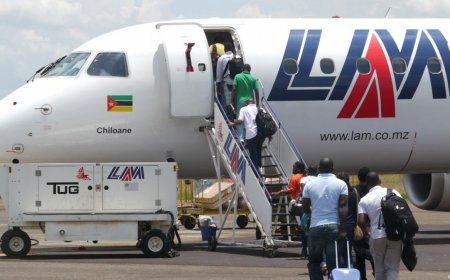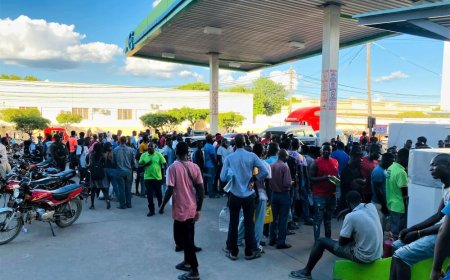Mozambique Government Divided Over Future of N4 Toll Road: Renew South Africa’s TRAC or Hand Over to Controversial Local Operator REVIMO?
Mozambique’s government under President Daniel Chapo is facing a strategic dilemma over the future management of tolls on the country’s busiest highway, the EN4, particularly the key Maputo–Moamba corridor. As the current concession agreement with South African operator Trans African Concessions (TRAC) nears its end in 2028, the administration is torn between renewing the deal or handing over the contract to the state-linked and controversial company Rede Viária de Moçambique (REVIMO).

The original agreement with TRAC, signed in 1997, includes an automatic renewal clause if the company fulfils its obligations to maintain and upgrade the road. TRAC is currently accelerating work on the congested Ceres–Tchumene stretch in Matola — a long-delayed project now being fast-tracked in an apparent bid to meet the renewal criteria before the deadline.
But critics argue the efforts are too little, too late. With rapidly increasing traffic volumes and persistent structural bottlenecks, many question whether TRAC will be able to complete the required upgrades in time — or if the road’s chronic congestion problems can be resolved under its continued management.
Meanwhile, within government circles, the notion of nationalising control over strategic infrastructure is gaining momentum. REVIMO, established specifically to manage the toll roads on Maputo’s circular highway, has emerged as a potential local replacement. However, the company’s credibility is under serious scrutiny.
With no proven experience in road construction or maintenance, REVIMO is widely criticised for lacking transparency and being more focused on revenue collection than service delivery. Critics argue it was designed to serve vested political interests, raising serious concerns both within the administration and among the public.
The debate has exposed deep divisions inside the executive. One camp believes efficiency should be prioritised, arguing that where private operators are effective, they should remain. The opposing view insists that, nearly 50 years after independence, Mozambique must take full control of its essential infrastructure.
The issue is further complicated by political unrest. Toll collection across Maputo has been suspended for three months following a decree by opposition figure Venâncio Mondlane, who declared a 100-day halt to protest the results of last year’s disputed elections. With the suspension period nearing its end, the government has yet to clarify whether tolling will resume or be extended.
Officials have confirmed that talks are underway with both TRAC and REVIMO to chart a way forward, but the lack of clarity is fuelling uncertainty in a sector that demands long-term planning and investment.
In a public consultation conducted by TORRE.News, most toll road users expressed dissatisfaction with high fees but acknowledged TRAC’s maintenance standards. “I think we should pay for the Maputo–Matola toll, but the cost should be halved. At least TRAC is maintaining the road,” said Alberto Vombe, a Matola resident.
REVIMO-managed tolls, by contrast, face widespread rejection. “We’ve opposed these tolls from the start. I pass two gates just to get home. They’re illegal and should be removed,” said Joana Adolfo Tembe, a commuter from Chiango.
The fate of the EN4 remains unresolved. The government’s decision could set a precedent for a new model of infrastructure governance — or signal the continuation of a system that, while operational, remains mired in controversy over transparency, fairness, and national interest.






















